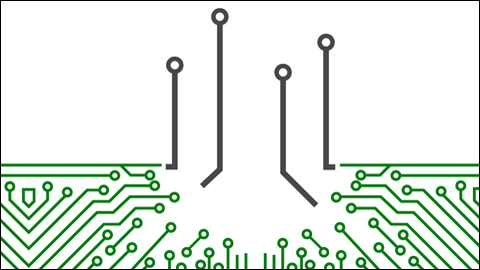Start of electoral campaign to choose the UAB's new rector electronically on 27 & 28 October

Today, Monday 19 October, marks the beginning of the electoral campaign to choose a new UAB rector. The General Elections Board announced a single candidate this midday: Javier Lafuente Sancho, professor in chemical engineering.
19/10/2020
The electoral campaign to choose the UAB's new rector will take place on 27 and 28 October. For the first time, the elections will be held electronically. On 19 October, the candidate to become the new rector of the UAB and the start of the electoral campaign was announced. The General Elections Board has proclaimed one single governing team candidate, headed by Javier Lafuente Sancho, professor in chemical engineering.
Professor Javier Lafuente from the Department of Chemical, Biological and Environmental Engineering earned his degree in Chemistry, with a specialisation in Technical Chemistry, in 1982. He received a PhD Cum Laude in Chemical Engineering in 1988 under the direction of professors Manel Poch (UdG) and Carles Solà (UAB). He is director of the Research Group in the Biological Treatment of Waste Water and Gases. Elimination of Nutrients, Odours and Volatile Organic Compounds Group (GENOCOV), and director of the centre for technological tranfer of the TECNIO network belonging to the Government of Catalonia's Technology Centre for the Comprehensive Treatment of Gas Emissions, and Liquid and Solid Waste (BIO-GLS). Professor Lafuente has worked at the Massachusetts Institute of Technology (MIT) in Boston, at the Institut National Polytechnique de Grenoble (INP), the University of California (UC) and the Illinois Institute of Technology (IIT) in Chicago. His research focuses on the application of biological systems for the treatment of contaminating wastewater. He is author of 141 publications in indexed journals with over 3,500 citations and has directed 12 Phd theses and several final projects. He also created two environmental spin-offs for the application of cutting-edge wastewater treatment technologies. In the management department, he has directed a research group, a faculty department, and is also the UAB's Vice Rector for Innovation and Strategic Projects since 2016.
A Safe Electronic Voting System
The UAB Rector elections, which were aimed to be held in May 2020, were finally cancelled due to the state of alarm declared in Spain as means to mitigate the Covid-19 pandemic. Once the state of alarm ended, the UAB Governing Council announced that the elections would take place at the start of the 2020/21 academic year. Voting will take place from 10 a.m. on 27 October to 4 p.m. on 28 October. A total of 38,361 members of the university community are invited to cast their vote: 1,285 from the A sector; 2,967 from the B sector; 31,979 from the C sector; and 2,130 from the D sector. The final results will be announced by the IAB General Elections Board on 30 October.
For the first time ever, the elections to choose a new rector will be held entirely online: voters will be able to cast their vote using any computer or mobile device connected to the internet. The UAB has used this type of system in several electoral campaigns held at its teaching centres, as well as when voting for trade union representatives. Voting online can be done through a computer platform, common to all public universities in Catalonia, promoted by the ACUP and managed by the CSUC. The platform includes security systems that guarantee the anonymity of voters and includes the necessary tools for voters to check that their vote was emitted correctly, without establishing any connections between voter and their vote.
The UAB rector is the maximum institutional representative of the university and is elected through universal suffrage by the entire university community. Voters are divided into four sectors: tenured professors (Sector A, 51% of weighted votes), the remaining lecturing and research staff (Sector B, 9% of weighted votes), undergraduate and graduate students (Sector C, 30% of weighted votes) and administration and services staff (Sector D, 10% of weighted votes). Rectors are elected every four years and the same person can be reelected only once Only university professors can run for rector.
More information:
University Rector Elections 2020
null
This information is related to the following SDG
Sustainable cities and communities